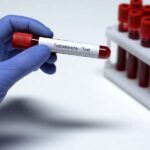At St. Johns Wellness, we understand the critical role hormones play in maintaining our health and well-being. Testosterone, often associated with male health, affects various bodily functions. Low testosterone levels can lead to a myriad of health issues that, if left unchecked, can significantly impair quality of life. Today, we’ll explore what happens if testosterone levels are low and why maintaining balanced hormone levels is crucial.
Understanding Testosterone and Its Importance
Testosterone is primarily known as the male sex hormone, but it is also important for both men and women. In men, it’s produced in the testicles, whereas in women, smaller amounts are produced in the ovaries and adrenal glands. This hormone is pivotal for developing male growth and masculine characteristics during puberty, and it continues to play significant roles in adult men by regulating sex drive (libido), bone mass, fat distribution, muscle mass and strength, and the production of red blood cells and sperm.
Signs and Symptoms of Low Testosterone
The symptoms of low testosterone can vary widely, and they often mimic those of other conditions, making it a somewhat elusive diagnosis at times. Common signs include:
- Reduced sex drive
- Difficulty with erection or sexual performance
- Lowered sense of well-being
- Depressed mood
- Difficulties with concentration and memory
- Fatigue and lack of energy
- Muscle weakness
- Increased body fat
- Decreased bone density, which may lead to osteoporosis
- Changes in cholesterol and other cardiovascular markers
Health Consequences of Untreated Low Testosterone
If low testosterone is not treated, the effects can extend beyond the immediate symptoms. Long-term consequences include:
- Sexual Dysfunction: Persistent issues with sexual performance can lead to stress, anxiety, and relationship problems.
- Mental Health Issues: The link between low testosterone and depression is well-documented. The hormonal imbalance can exacerbate feelings of sadness and hopelessness.
- Physical Health Decline: Reduced muscle mass and increased fat can contribute to obesity, compounded by a higher risk of diabetes and cardiovascular diseases.
- Bone Health: Osteoporosis is a serious risk due to decreased bone density, leading to an increased likelihood of fractures and other bone injuries.
- Metabolic Syndrome: Low testosterone is linked to some components of metabolic syndrome, including obesity, diabetes, and other heart-related issues.
Diagnosing and Treating Low Testosterone
Diagnosing low testosterone involves a simple blood test to measure the level of testosterone in your blood. At St. Johns Wellness, our healthcare professionals can conduct these evaluations and discuss potential treatment options that consider your overall health and specific symptoms. Treatment for low testosterone may include:
- Hormone Replacement Therapy (HRT): Carefully monitored testosterone replacement can alleviate many symptoms of low testosterone.
- Lifestyle Changes: Improving diet, increasing exercise, quitting smoking, and reducing stress can naturally boost testosterone levels.
- Medications: Certain medications can help in cases where lifestyle changes alone are not enough.
Conclusion
Low testosterone can significantly affect a person’s quality of life, leading to physical, mental, and emotional health issues. At St. Johns Wellness, we prioritize a holistic approach to hormone health, ensuring that our patients receive personalized care tailored to their unique health needs. If you’re experiencing symptoms of low testosterone, don’t hesitate to reach out for a comprehensive evaluation. Remember, addressing this issue promptly can lead to a healthier, more vibrant life.





